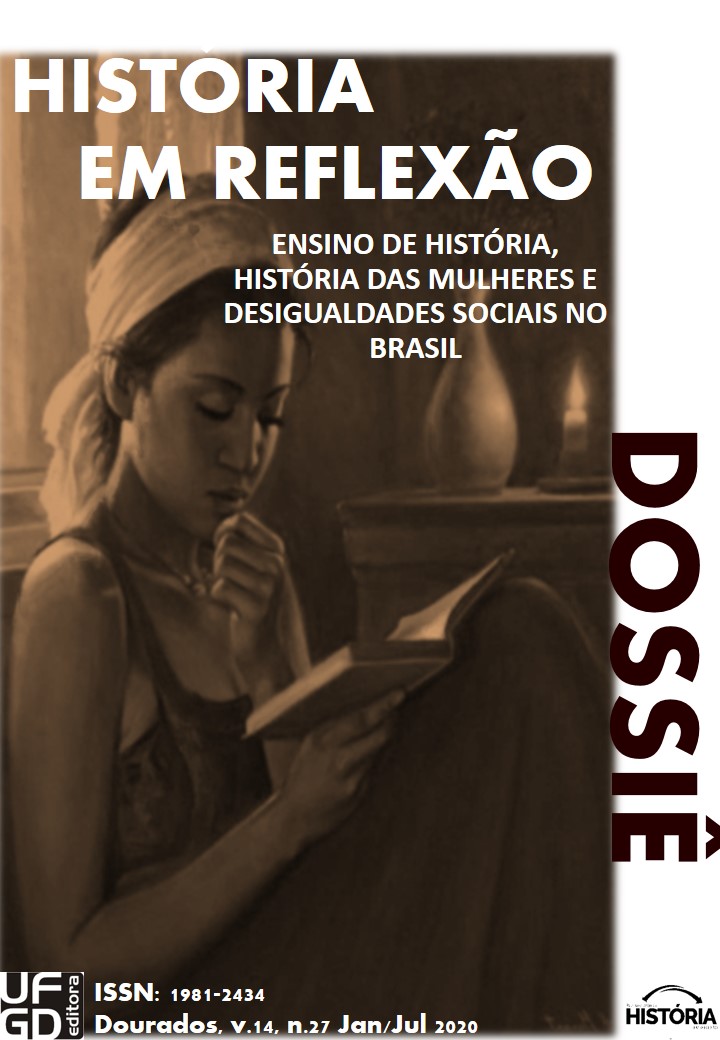For a whole feminist life: interview with Joana Maria Pedro
DOI:
https://doi.org/10.30612/rehr.v14i27.12550Abstract
It was in the city of Itajaí-SC that Joana Maria Pedro was born. Endowed with a pleasant and also firm voice, a woman without half words, she teaches us how to support other women. Their struggle is not a recent one. It is part of his continuing education, his travels to Europe, the contact in a fruitful and intellectual environment with French feminists for at least two decades, in his travels in academic events, among others.
Their struggle runs through women's rights - both academic, political, feminist, and housewives, made invisible by history. Author and organizer of several works that have contributed to the field of women's history, gender studies and feminist theory, she holds a doctorate in Social History from the University of São Paulo (USP), with a postdoctoral degree from the Université d'Avignon et des Pays de Vaucluse. She is currently a full professor in Social History at the History Department at the Federal University of Santa Catarina (UFSC). Composes as a researcher the Institute for Gender Studies (IEG / UFSC). She is the author of some published books, such as "honest women, spoken women" and "in the plots between public and private". In addition, she is co-organizer of the books “Gender, feminisms and dictatorships in the Southern Cone” and “New History of Women in Brazil”. There are also several chapters published in several collections, such as: “History of women in Brazil”, “Brazil in the context 1987-2007” and “History of Citizenship”.
If, someday, a feminist becomes enthusiastic about making Joana's biography, she cannot leave out, in addition to the historian, feminist, mother, teacher, advisor, activist, companion, the solidary and sensitive human being that she is, and of how it represents us. We are all historians, but with Joana we learned to be feminists who acted academically and politically for the rights of women in that country - fighting for equal rights and opportunities. Our formation in History has relegated an important role and committed to the social in time and space. And with Joana Maria Pedro, she paved the way for future generations, with a legacy to continue the struggle in search of a possible world in which hope converges in a revolution against all forms of injustice and gender inequalities that cross everyday life millions of women in Brazil.
It is from this prominent feminist historian that the present Dossier “History of Women, Gender and Social Inequalities in Brazil” has an unprecedented interview that has undeniably corroborated the work's potential and sparked innovative debates.
Downloads
Downloads
Published
How to Cite
Issue
Section
License
Os autores devem aceitar as normas de publicação ao submeterem a revista, bem como, concordam com os seguintes termos:
(a) O Conselho Editorial se reserva ao direito de efetuar, nos originais, alterações da Língua portuguesa para se manter o padrão culto da língua, respeitando, porém, o estilo dos autores.
(b) Autores mantém os direitos autorais e concedem à revista o direito de primeira publicação, com o trabalho simultaneamente licenciado sob a Atribuição-NãoComercial-CompartilhaIgual 3.0 Brasil (CC BY-NC-SA 3.0 BR) que permite: Compartilhar — copiar e redistribuir o material em qualquer suporte ou formato e Adaptar — remixar, transformar, e criar a partir do material.
A CC BY-NC-SA 3.0 BR considera os termos seguintes:
- Atribuição: Você deve dar o crédito apropriado, prover um link para a licença e indicar se mudanças foram feitas. Você deve fazê-lo em qualquer circunstância razoável, mas de nenhuma maneira que sugira que o licenciante apoia você ou o seu uso.
- NãoComercial: Você não pode usar o material para fins comerciais.
- CompartilhaIgual: Se você remixar, transformar, ou criar a partir do material, tem de distribuir as suas contribuições sob a mesma licença que o original.
- Sem restrições adicionais: Você não pode aplicar termos jurídicos ou medidas de caráter tecnológico que restrinjam legalmente outros de fazerem algo que a licença permita.



